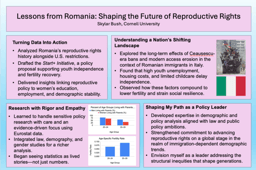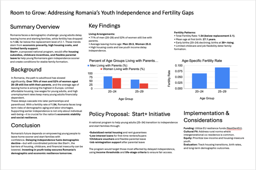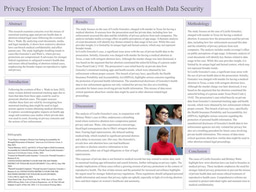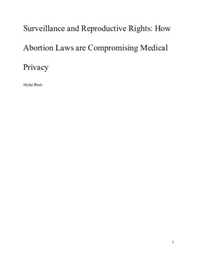Project Outline: Period Trackers, Surveillance, and the Stakes of Not-Knowing
Technology, Medicine, Policy: Re-engineering the Gap between Physical and Digital Bodily Autonomy in Period Trackers
Supervised by: Dr. Jess Marie Newman, Departments of Anthropology and Feminist, Gender, and Sexuality Studies, Cornell University
“Cycle Awareness” has rebranded. Gone are the days when “cycle tracking” appeared almost exclusively alongside “the rhythm method,” exemplars of ineffective, nonbiomedical interventions into the body. However, cycle awareness or cycle tracking has become shiny and new thanks to the rise of health and wellness apps. These digital modes of knowing the body extrapolate from what we conventionally think of as the reproductive body—studies of “wrist wearables,” correlate device-recorded wrist temperature with basal (vaginal) body temperature to produce “modern fertility awareness methods.”
They have also become dark and threatening in the shadow of Dobbs v. Jackson (2022). After the Dobbs decision, waves of Millennial and Zoomer menstruators warned their social media circles to delete their period tracker apps. For a generation of digital natives who have grown up with online footprints across social media and other platforms, Dobbs made privacy corporeal. Smartphones and wearable tech were suddenly more than banal artifacts of “the intense hybridization” between humans and machines, but instead a localized source of anxiety. Instead of knowing ourselves through technology, we fear technological self-incrimination. We are worried about being known by others—especially the powerful others who are so effectively eroding bodily autonomy.
This mixed-methods, humanistic, and social scientific project will combine comprehensive analysis of national “Big Data” sources (Gallup, Guttmacher, NIH) with the goal of using contraceptive, proceptive, and cycle tracking app use to interrogate qualitative data gathered through interviews with local college students, digital ethnography, and social movement research. While data analysis and digital ethnography will not be regionally-bound, interviews and social movement research will occur at multiple local scales: university, city, and state. As a Cornell professor and student, we will first create interview materials tailored to the Cornell University undergraduate and graduate student populations. During a subsequent phase, pending feasibility and funding, interviews and participant observation will expand to include Ithaca College students. We imagine this project eventually including Cornell’s other campus communities and moving beyond the national scale to partner with universities or communities in European countries where app usage is high, and where concerns about data privacy and bodily autonomy have been raised—including but not limited to Germany, Italy, Spain, and France.
Dobbs recast period tracker apps as technologies of state surveillance and discipline. A flurry of think pieces from outlets like Time (“Anti-Abortion Pregnancy Centers Collect Personal Data”) Forbes (“Facebook Has Been Targeting Users Who Visited Pregnancy Center Sites – How Could That Data Be Used?”) Bloomberg (“Pandora’s Box of Data Privacy at Risk with Abortion Ruling”) and The New York Times (“Deleting Your Period Tracker Won’t Protect You”) assured us we were in very big trouble. In May 2023, the top autocomplete suggestions for the Google search “period tracker apps” near two college campuses (Cornell and Temple University) were “that don’t share data,” “selling data,” “that don’t sell data” “that are safe” “privacy,” and “Roe v Wade.” Users who deleted their apps and profiles recognized the data’s potential collusion with disciplinary state apparatuses.
Divergent approaches to cycle apps—such as massive databanks, privacy breaches, easy record keeping, legal evidence, and personalized medicine—highlight the stakes of (not) knowing the body. As Dorothy Roberts and other reproductive justice scholars have robustly demonstrated, technology, medicine, policy, and policing trap certain reproductive subjects in their overlapping webs of surveillance and punishment. The same disciplinary injunction to control the body becomes the basis for criminalizing reproduction or the behaviors of pregnant people, especially in the context of substance use and pregnancy termination.
Cycle awareness would, therefore, seem to be more crucial than ever. Indeed, the promise of self-understanding is largely secondary to the cycle tracker app’s primary purpose in avoiding or achieving pregnancy. For app users tracking fertility to achieve conception, self-surveillance is an investment in the future in an equal and opposite way to those using apps to avoid pregnancy. This paper, therefore, reaches for a middle way, one that shirks digital technology’s promise of shiny newness while at the same time resisting the techno-woe that so often accompanies pessimistic humanist responses to technologization.
For a generation of menstruators who never had the physical calendars of Pregnancy Scares Past, apps have made marking bleed days and fertile windows functionally interchangeable with counting steps. and yet cycle tracking also relies on self-reporting. Remembering to record the cycle data is half the battle. As neoliberal subjectifying technologies, period tracker apps create responsible individuals who remember to remember how we felt that day and who can adopt clinical distance to both identify and understand what our bodies and minds are doing. We must become conscientious patients, or at the very least mindful of our bodies, to access ourselves through apps.
“User failure,” a black box from public health scholarship on contraception, undermines the promise of clean data. Tracker apps thus produce hybrid knowledge about the body even as the “seductions of quantification” lead health researchers to reify those data, using them to forecast population-level fertility trends. An article published in npj Digital Medicine heralds “Real-world menstrual cycle characteristics of more than 600,000 menstrual cycles” (Bull et al. 2019) and uses sheer sample size as proof of concept for big health data methodologies. And yet, the redundancy of “menstrual cycles,” and especially their modification as “real world,” leaves menstruators strangely disembodied. Scholarly and medical communities approach period trackers as massive databanks, but what does it mean to be databanked?
Data operate as simulacra for the body itself in the “real world” despite their active contribution to making that body. Apps and clinical data elucidate biomedicalization’s intensification of the body as a site for knowledge production—always facilitated through technological leaps that supposedly rendered flesh knowable. Period trackers produce new categories for embodied knowing even as they purport to provide users with intuitive access to our own cycles. Users contribute to our own digital subjectivation, interpolating our bodily processes into the app’s data sets: is this a heavy bleed day, or medium? Is that an ovulation cramp, or trapped gas? Does gas count as bloating? Am I eating all these M&Ms because I have PMS? What color and consistency is that discharge? Tech and flesh meet through bodily fluids, emotional states, alarms, projected fertile windows, and deep breaths.
While we are losing access to timely, safe, and legal abortions, Millennial and Gen Z menstruators are losing confidence in the emic technologies available for knowing our bodies. So we delete our apps and attempt to render our bodies unknowable to the state, but how do we replace them? Is a digital record any less secure than a physical one—what’s the difference between an app, a diary, and a calendar? What are the stakes of knowing or not knowing about a pregnancy or potential pregnancy? What speculative logics push the state’s will to know and punish deeper into the body? What disruptive or confounding strategies might prove protective?




Please sign in
If you are a registered user on Laidlaw Scholars Network, please sign in